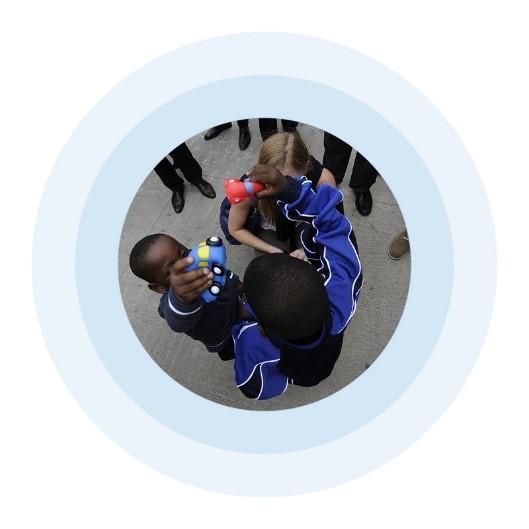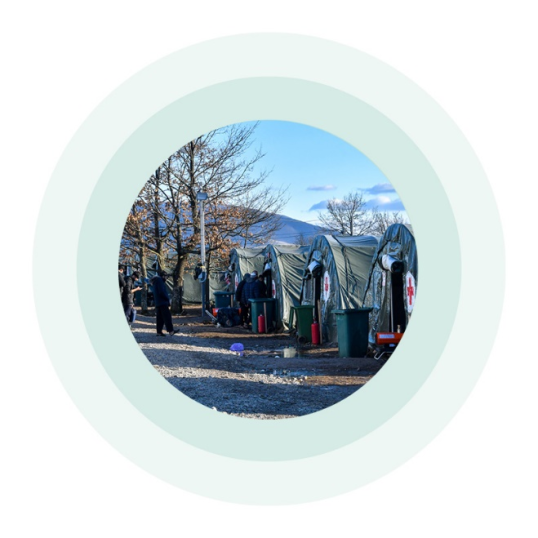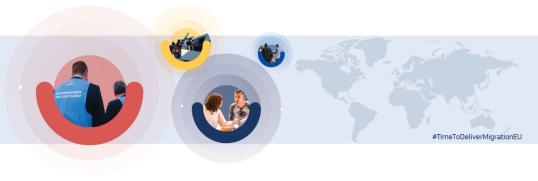Archived content
This website is no longer being updated. The content may be out-of-date and should be consulted for past reference only.
To find information about the College of Commissioners for the term 2024-2029, go to the Commission’s main website
This website is no longer being updated. The content may be out-of-date and should be consulted for past reference only.
At this week’s European Council migration was high on the EU leaders agenda. I am pleased that progress was made. It shows there is momentum building for our #EUmigration agenda. Step by step, we are making progress.
The first migration message of the European Council focused on how to prevent loss of life. This is a priority. People being put in a position where they risk their lives has to stop. To achieve that we need increased cooperation with partner countries. The European Council statement acknowledges that engagement with partners is crucial, particularly with those partners in our neighbourhood. It means listening to their respective contexts and challenges. It explains why, in recent weeks I have intensively engaged with government representatives - in Libya, in Tunisia, in Turkey in Morocco and in Serbia, Albania and Bosnia.
This engagement builds trust. And trust build momentum for the #MigrationEU proposals.
It is important to note that these efforts have not just started now. The EU has invested significantly over the years, building comprehensive, tailor-made partnerships on migration, focusing on the jointly identified priorities with key partners.
For instance, in Libya, the EU has devoted a total of around €700 million in recent years, to provide essential support to protect those in need, including the voluntary return of migrants, and the humanitarian evacuation of refugees and asylum-seekers from Libya, via Niger and Rwanda, to countries that have offered to resettle these individuals.
The plight of the refugees and migrants in Libya was at the top of my agenda when I visited the country a few weeks ago. We discussed how the EU and international organisations can support migration management and how to improve conditions for migrants in the country.
During this European Council, the EU’s commitment to Libya’s stabilisation process under the auspices of the United Nations was also reaffirmed, with migration remaining a priority subject.
Leaders also discussed Turkey. It needs to be acknowledged that Turkey is the country that hosts the biggest refugee community. The 2016 EU-Turkey Statement is the framework for cooperation on migration. On the EU-side, we have resettled around 29,500 people from Turkey and delivered €6 billion worth of projects to the benefit of refugees in Turkey and their host communities. The European Council this week called upon the Commission to put forward a proposal for the continuation of financing for Syrian refugees and host communities in Turkey, Jordan and Lebanon. This is precisely what we are now working on. At the same time, we expect Turkey to also live by its commitments.
Despite these achievements, EU Leaders confirmed that more needs to be done. The recent terrible situation in Ceuta as well as the increases in departures from Libya and Tunisia are reminders that economic consequences of the pandemic have made the living conditions of many people considerably more precarious. It has pushed many to undertake dangerous journeys and to resort to using migrant smugglers.
The EU Leaders have now tasked the Commission to further strengthen the support to countries of origin and transit. In Autumn 2021 action plans for priority countries will be tabled by the Commission.
Additionally, the European Council called upon the Commission to make the best possible use of [at least 10% of] the Neighbourhood, Development and International Cooperation Instrument (NDICI) fund as well as other relevant instruments related to migration action, and report to the Council on its intentions in this respect by November. The NDICI is EU’s financial instrument supporting its external action. This instrument is essential in providing the needed funding for engagement with partner countries on migration. The overall budget of NDICI for 7 years is of €79.5 billion. This means close to €8 billion for migration.
I will continue to travel to countries to have the possibility to meet, eye to eye, the responsible representatives to strengthen these migration partnerships. And I can assure you that the European Commission will continue to play its role in the global arena, in supporting partner countries to manage migration in a responsible way. Respect for human rights will always guide our action.
#TimetoDeliverMigrationEU is a weekly blog outlining the benefits of the proposals on migration tabled by the European Commission on 23 September 2020. For more detail New Pact on Migration and Asylum see below.
For More information
New Pact on Migration and Asylum | European Commission (europa.eu)
Commissioner Johansson’s blog: More legal pathways to the EU
Commissioner Johansson’s blog: How can the EU match skill needs and legal migration: talent partnerships
Commissioner Johansson’s blog: Every life lost at sea is a tragedy, deadly travels must be prevented
Commissioner Johansson’s blog: A transparent and accountable EU-wide asylum and migration system means modern digital infrastructure
Commissioner Johansson’s blog: What a full European Asylum Agency would bring to asylum and migration management
Details
- Publication date
- 27 June 2021
- Author
- Directorate-General for Communication



